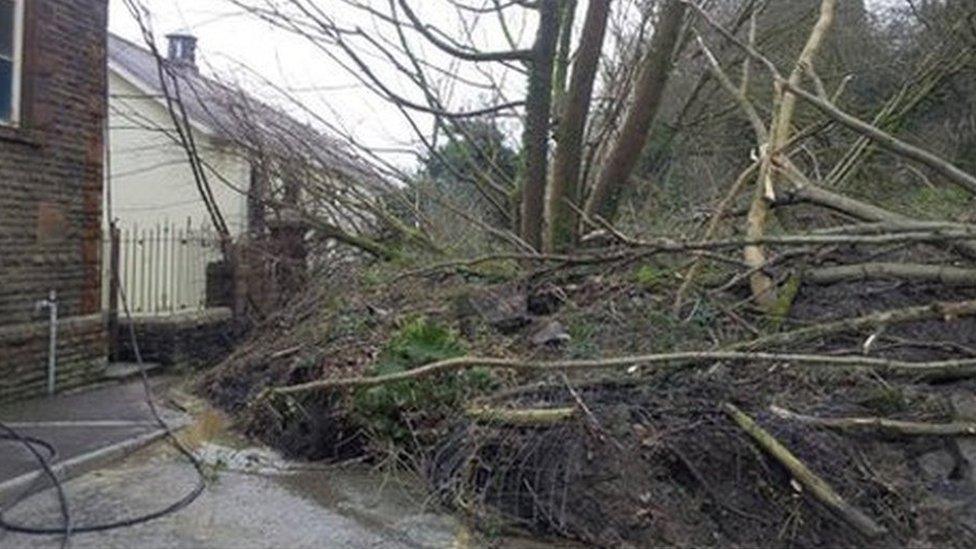Landslide homeowner's £20,000 Ystalyfera evacuation fight
- Published
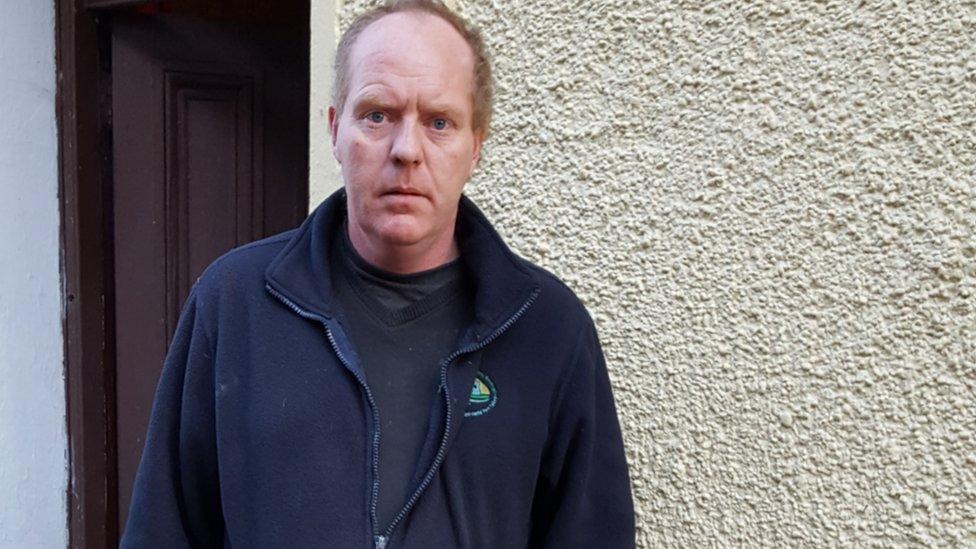
Still here - Richard Morrison is fighting the order to leave his home
A homeowner says he has spent up to £20,000 fighting to stay in his home after he was ordered to leave following a landslide.
Residents were told to leave a terraced row in Ystalyfera after mounds of earth fell down the hillside in August.
But Richard Morrison has refused to leave and said the council would "have to knock the house down around me".
Neath Port Talbot council said it was trying to keep people safe, external.
The council estimates it will have spent at least £500,000 by the end of March dealing with the landslides and is using drones in a bid to predict future movements.
Thousands of tonnes of rock, soil and trees first slipped down the hillside behind the houses in 2012, with a further two landslides this year, causing some gardens to drop away.
One empty property in Cyfyng Road is set to be knocked down, while residents in 10 properties have been served enforcement notices to leave after safety concerns.
But Richard Morrison refused and told BBC Wales he had already spent up to £20,000 fighting the evacuation demand.
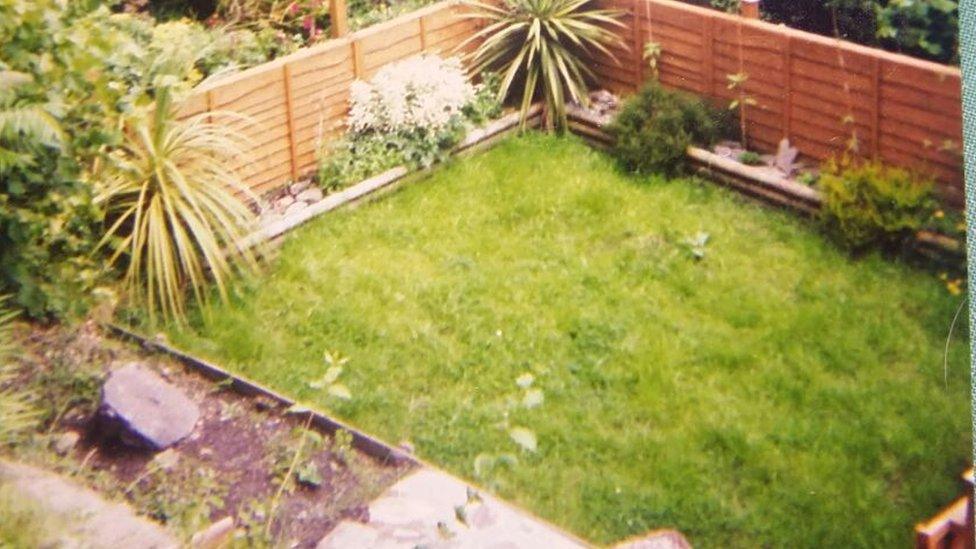
Mr Morrison's garden was destroyed by the slide
It has now been nine months since he was woken in the night by what he thought was a rumble of thunder.
The next morning he found most of the terraced garden at the back of the home, which he shares with his partner Jackie Kendall, had slid down the mountain.
Further slips followed and in August Mr Morrison - along with the residents of nine neighbouring properties in Cyfyng Road - were told that they should move out on safety grounds.
Neath Port Talbot council served the emergency prohibition orders because it believed the residents were facing an "imminent risk of harm".
But Mr Morrison has disputed that and, while most of his neighbours packed-up and left, he and Jackie decided to stay and appeal against the order.
"It has cost me a pretty penny - all in all it's between £10,000 and £20,000," he told BBC Radio Wales' Eye on Wales programme.
"I've ignored taking a record of how much it has cost because we're doing it anyway - there's no going back.
"We've lost a bit of faith in the house because it could be all gone tomorrow if the council have their way. It's a perfectly fine house."
Drone footage shows the landslip which has affected homes in Ystalyfera
Their case will be heard at a tribunal in three weeks' time, when Mr Morrison will present expert evidence he believes supports his argument that the original landslip was caused by water from a broken culvert washing away ground and not part of the wider, historical landslide.
There have been at least 45 landslides in the area since the 1890s and, over the years, a number of homes have had to be demolished in the Pantteg and Godre'r Graig areas.
After the last major incident in 2012, consultants produced a hazard map which put Mr Morrison's home in the lowest risk category.
Following this year's incidents the council has again brought in experts to investigate what is happening in Cyfyng Road.
Council leader Rob Jones said he had no choice but to act - and serve the enforcement notices - to "protect people's lives".
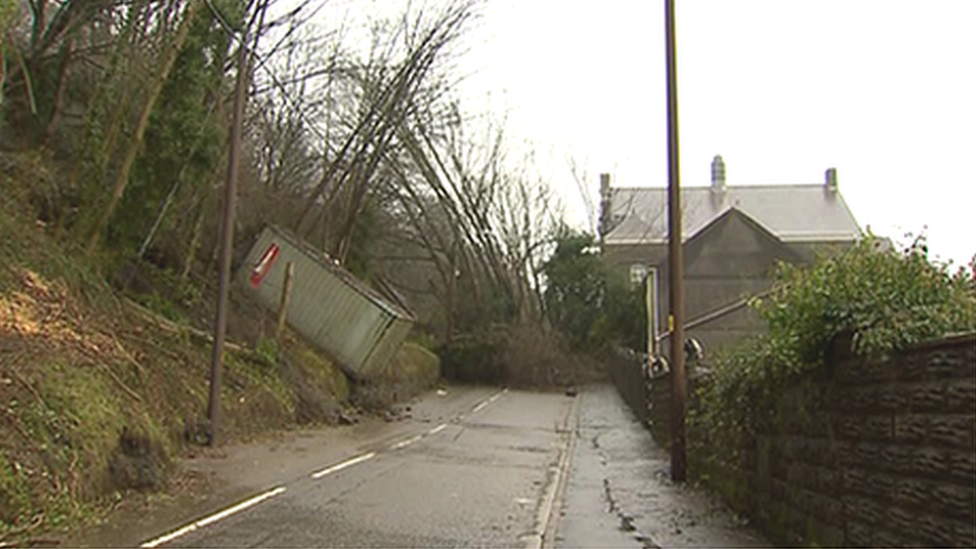
The landslip in December 2012
"The information I had presented to me was that those 10 properties were subject to imminent danger because if what was in the garden was under the houses then there's a risk that those houses also landslide down the mountain," he said.
"This isn't the council's doing. The council are picking up the pieces of a natural disaster. We're doing all that we can to make sure that residents are safe."
If the orders are upheld by the tribunal on 18 December and it proves impossible or too expensive to make the houses on Cyfyng Road safe, the council could then serve a demolition order.
It is not something Mr Morrison is prepared to contemplate.
"That would be the worst-case scenario. They'll literally have to knock the house down around me. We just want what's ours - our home - that's all we want," he said.
You can listen to Eye On Wales on BBC Radio Wales at 18.30 GMT Sunday, 26 November
- Published23 August 2017
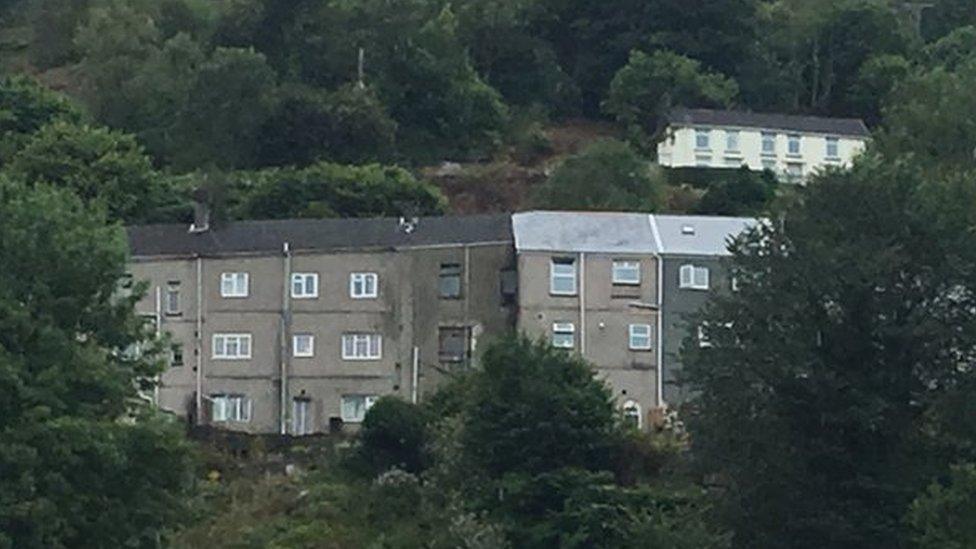
- Published18 August 2017

- Published23 August 2017
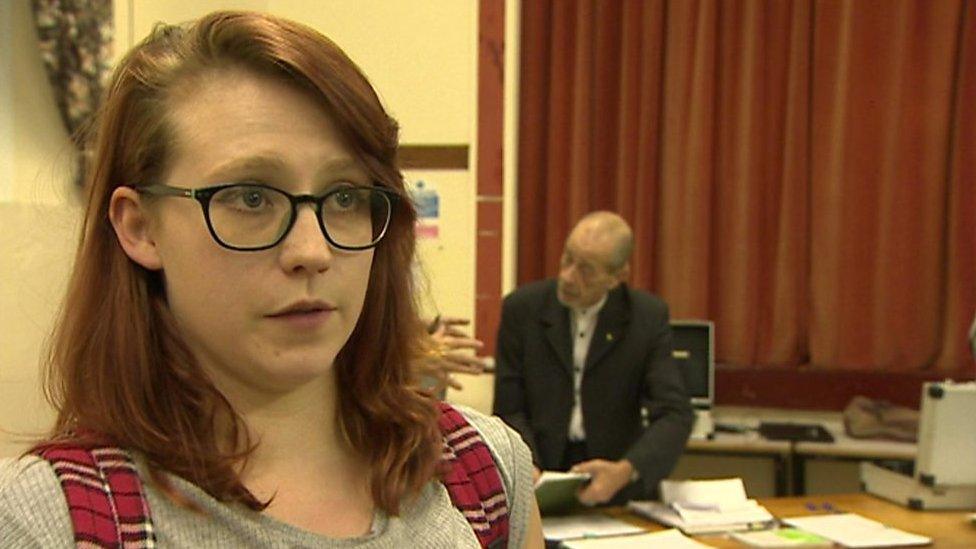
- Published11 August 2017
